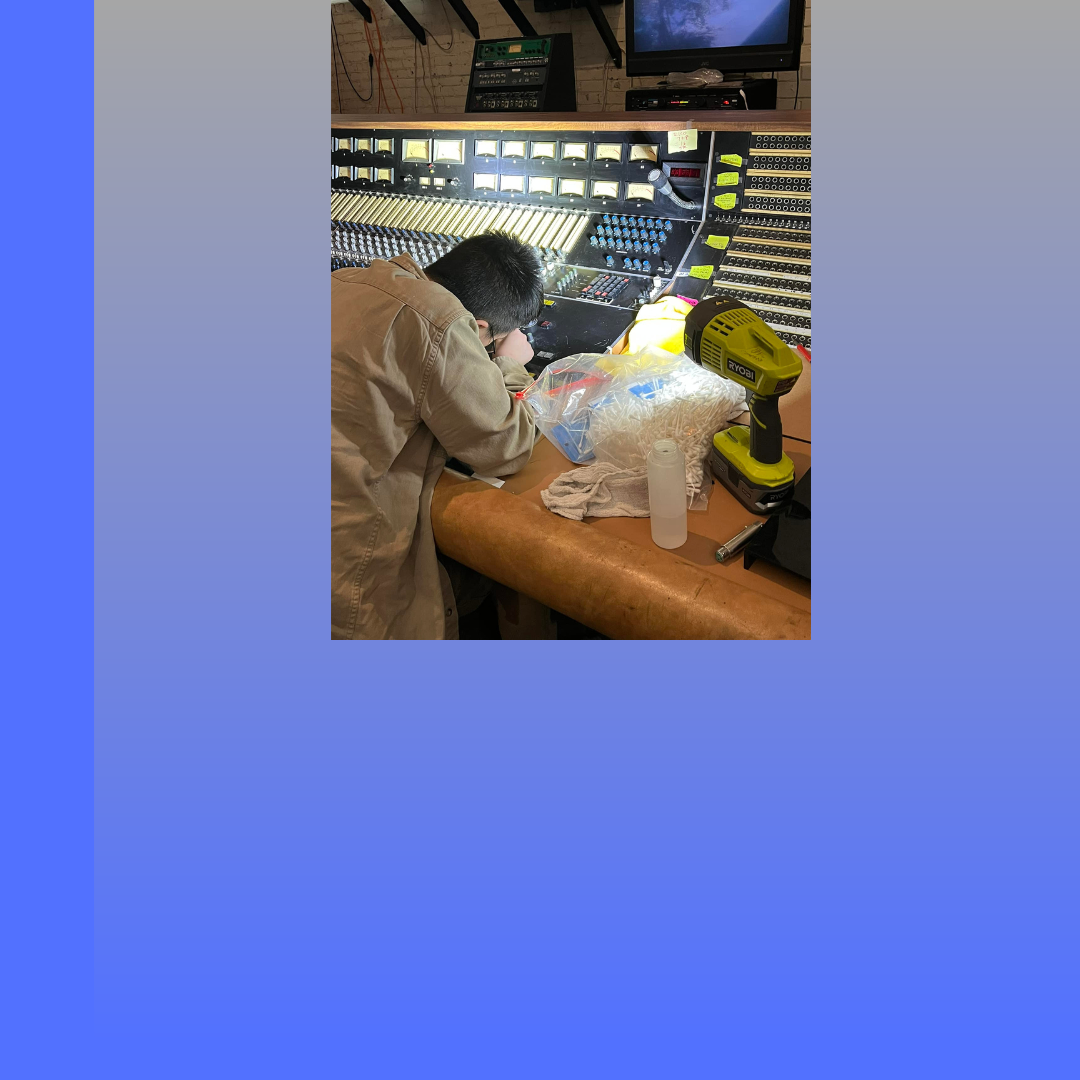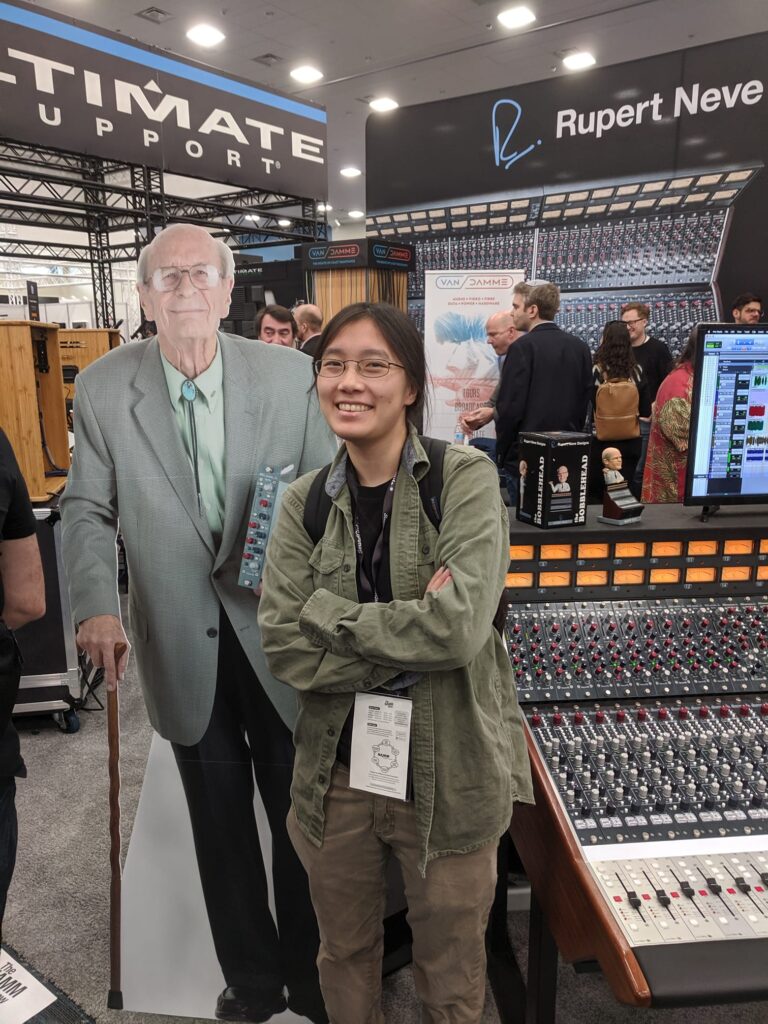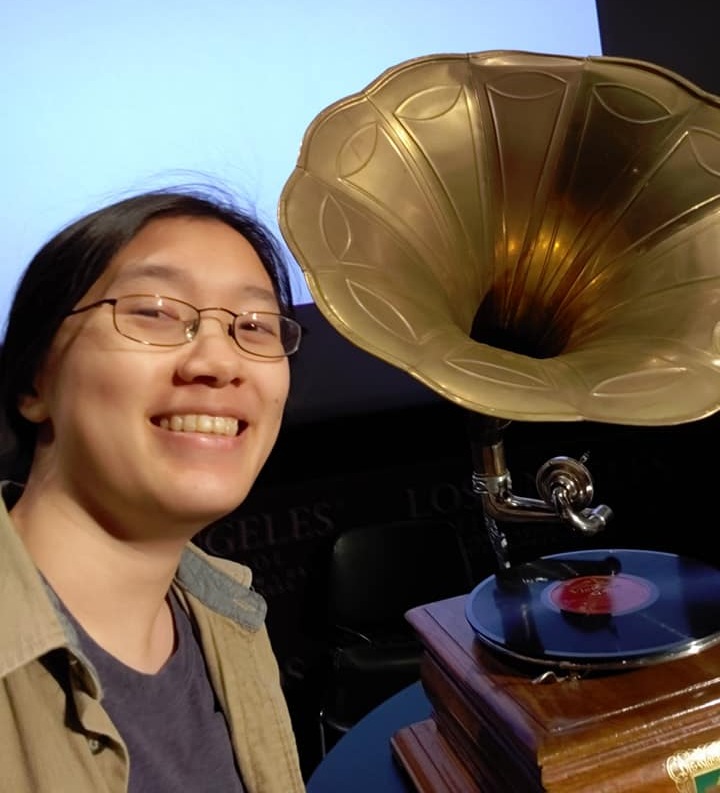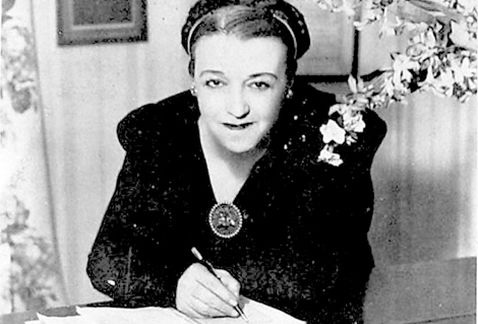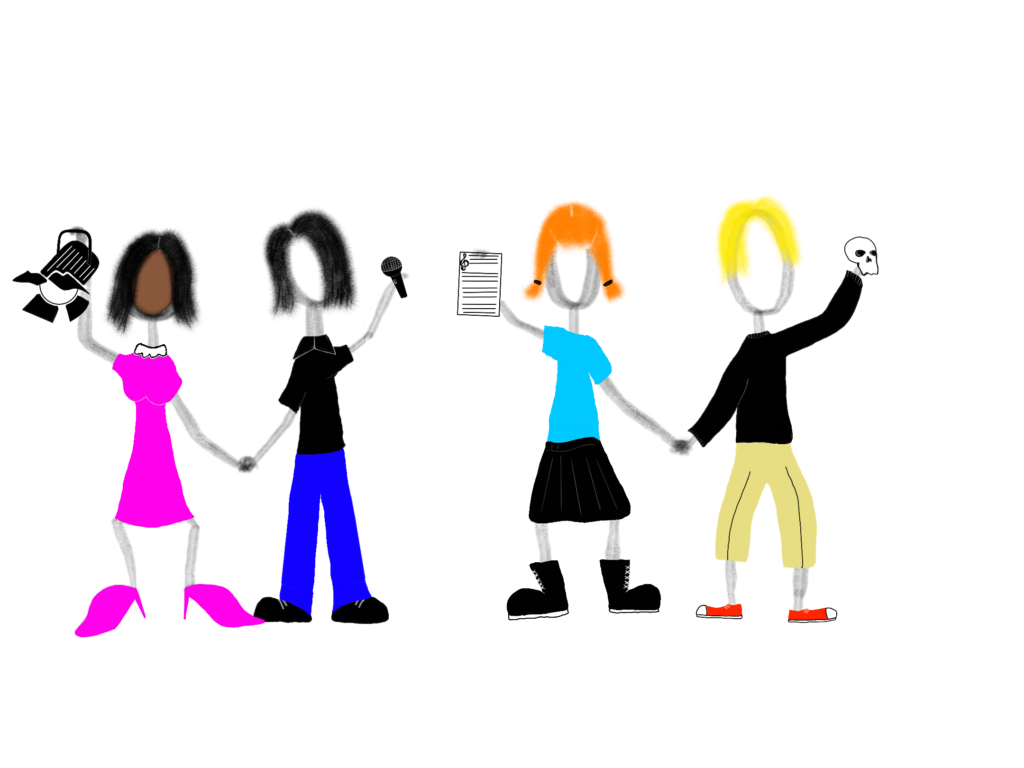Jasmine Mills (she/her) is a freelance recording engineer and music producer based in Los Angeles, working under her brand Jasmine Mills Audio. Since 2018, Jasmine has built her career in the LA music scene, balancing freelance projects with her role as part of the staff of freelance audio engineers at 4th Street Recording in Santa Monica, owned by Kathleen Wirt. Jasmine first connected with 4th Street as a summer intern in 2018, and like many of the engineers who came before her—including head engineer Sejo Navajas—she rose through the studio’s intern system to become a trusted member of the team.
Her path into audio wasn’t always clear-cut. While Jasmine always loved music, it wasn’t until her freshman year of college that she truly understood what recording engineers do. Wanting a career that combined her passions for both music and science, she discovered audio engineering was the perfect fit. From there, her curiosity and dedication led her to the State University of New York at Fredonia, where she earned her B.S. in Sound Recording Technology through a rigorous program modeled after the German Tönmeister education philosophy.
At SUNY Fredonia, Jasmine immersed herself in both the technical and musical aspects of the program. During her first year, she joined Sound Services, a student-run live sound club, which gave her hands-on experience and prepared her for advanced coursework and studio classes. Prior to college, Jasmine nurtured her musical background as a violinist, performing in string orchestras, pit orchestras for musicals, and NYSSMA solo festivals.
Jasmine’s love for sound started young—burning mix CDs on her Dell PC, experimenting with overdubs on her iPod, and even recording the entire soundtrack of Shrek 2 on a cassette player (by placing the recorder next to the TV). Growing up, she was inspired by everything from Across the Universe and Beatles deep-dives to Broadway musicals, the Titanic score, and the timeless catalog of Queen. These eclectic influences continue to shape her approach to music production today.
With a deep appreciation for the artistry and science of sound, Jasmine brings passion, precision, and creativity to every session. Whether she’s working on rock, classical, swing, or show tunes, her goal is always the same: to help artists bring their vision to life.
Career Start
How did you get your start?
The 4th Street Recording internship definitely laid the groundwork and allowed me to plant roots in LA in terms of building a network and learning vital information on how to lay a path in the field. Kathleen Wirt (4th Street Recording’s owner) was one of the few studio owners in Los Angeles that emailed me back and we had a very large email correspondence back and forth before I arrived for my internship. She has definitely helped me make great connections out here through workshops, events, and advocacy groups.
After the summer internship was over, I still had a semester left of college left. I didn’t want to uproot the progress I’d made in LA by leaving, I didn’t want to further incur college costs on classes they were requiring me to fill up credit hours, and Fredonia was just way too small after being in LA. So, I ended up completing that semester virtually (in Fall 2018 semester – so 2 years before virtual learning was the main thing) and my internship was retroactively contributed into credit hours and the Dean of The School of Music did something magical on his end, and I got my degree. I did have to do a research paper and one senior project.
I met Lenise Bent and Ainjel Emme at an analog tape workshop held at 4th Street Recording, which is how I ended up joining Soundgirls. Ainjel is how I learned about NAMM. Lenise is how I heard about the weekly audio lunches which is how I met many many other people. There were also the weekly SoundGirls zoom meetings we had on Sundays during the pandemic lockdown. Through Soundgirls, I met Jett Galindo, who taught me more about how mastering works and is the reason I made my website, jasminemillsaudio.com.
How did your early internships or jobs help build a foundation for where you are now?
They definitely helped in making the valuable connections and networks I have to this day. I was able to find a community of like-minded audio engineers, producers, artists, musicians, and audio techies.
What did you learn interning or on your early gigs?
I definitely learned a lot about working with various personalities and the different approaches you have to take when running a session having different people wanting things from you from all sides at once. The importance of reading people and social cues was stressed in school but couldn’t prepare me enough for how vital it was during a session. I learned about the importance of the assistant engineer (budget-permitting).
Did you have a mentor or someone that really helped you?
Oh, man. I have so many people I consider a mentor. Like an awards speech. Dave Fridmann and Bernd Gottinger from SUNY Fredonia. I still seek advice from them. LA-wise, Kathleen Wirt is a great source of info and insight about the music industry. Sejo Navajas, the head engineer at 4th Street Recording and co-owner with Kathleen, has many years of experience, and given that he knows the studio, I’m able to ask about specific setups and he’ll understand what I mean (usually). Lenise Bent and Ainjel Emme are my music production mentor gurus – we also all share a fondness for analog tape recording and vintage audio gear in general. Other people that have taught me have been Tom Hilbe, Autumn Pittman, Ross Leitner, Uri Gelman, and I know there are so many others. Just go look at my Facebook.
Career Now
What is a typical day like?
It varies as a self-employed freelancer. It’s always about finding gigs. So some days I’m typing something for an article (not as much as of late), texting/emailing/bothering people, responding to posts on Facebook on LA musician-related pages (I have Instagram, but it’s mostly for business purposes).
How do you stay organized and focused?
I don’t…just kidding. I love making lists and spreadsheets for fun. I’ve gotten better about doing it on the computer so I don’t waste a ton of paper in notebooks. Sometimes I feel like my thoughts are always on the go, not so much racing, but always moving. So, sorting my thoughts by writing it out can take my mind off of things. It may come as a shock to many people, but I’m an introvert. As much as networking at events is vital to getting work in my field, I can run out of steam unless I pace myself.
What do you enjoy the most about your job?
I love figuring out how things work – the cause and effect of everything. There’s a certain beauty in it and how concrete the science is. Maybe that’s why I’m not a composer or songwriter. Conversely, I like the infinite different ways people find to sonically express themselves. What a conundrum! I like to geek out over the history of vintage gear – especially recording consoles, tape machines, analog outboard gear, and mics.
What do you like least?
Dealing with people with personalities that are not-as-desirable. A great work environment is safe, professional, and open to fun (in the strictest scenarios, even a tiny bit of fun and humanity can go a long way). When there is a person who does or says things that impede on that ideal environment and make the workflow to a slowdown, it makes the job less fun and more like a chore. I know handling these types of things and conflict resolution is part of the job – doesn’t mean I really enjoy it.
What is your favorite day off activity?
Crosswords, puzzle books (NOT WORD SEARCHES), phone app games (Android), watching my YouTube videos (ranges from movie commentators, film analysis, outdoor survival skills, musicals, cute animals), or looking at the TikTok (celebrity gossip, cute animals again, latest movie news, movie production trivia, news in general, history, math, science), and the Pinterest (I can keep everything private and not have to interact with people online; making the boards appeals to my love of sorting).
What are your long term goals?
I do hope to one day be a recording engineer on a scoring stage that tracks orchestral music for film/TV. I’ve managed to shoehorn my way into one scoring session at Fox, one at Hollywood Scoring LA, and I’ve interned on some sessions at Evergreen Studios.
What if any obstacles or barriers have you faced?
My young age, (the Asian Persuasion™ youthful look doesn’t help) and being female. Sometimes these have prevented older, usually male, music industry workers from taking me seriously.
How have you dealt with them?
I usually just don’t work with them any further or find a way to work around them if nothing improves. I quit one gig because they wanted to a guy that I told them was, at a prior work gig, verbally abusive to me via texts and took the time to call me an “idiot” to my face during said gig (it did make me cry – and to no one’s surprise, his berating and making me trace a cable onstage during the MIDDLE OF A SONG did not make the troubleshooting go any quicker). The hiring staff told me they can’t penalize him for something he did before they met him (which is kind of the whole point of vetting candidates for a job) and they desperately needed someone experienced (even though I knew many Soundgirls in the area who were overqualified). The place had been not paying me a lot before then. My freelance gig there required me to do two simultaneous mixes (one of them with a delay), do a Pro Tools recording during the service (it was a church), hit the cue button on the lighting console, and operate the slideshow. When a different reverend took over, additional slideshows were added during the sermon. The losses started outweighing the effort and gains for that job, and after they hired the guy even after what I had disclosed about him, I quit.
Another incident involved a white male rapper making sexist and racist remarks (not overt, but still there) towards me and waxing some not so friendly philosophical views about African Americans. I resolved to just take the money and sit in the front room during the sessions. I didn’t need to be in the control room for those sessions (I was assisting).
Advice you have for women who wish to enter the field?
Find a women’s advocacy group. There are so many that cater to different niches in audio engineering around the world. You’ll find your peeps there and be able to build a support network.
Must-have skills?
Social and people skills (being a recording engineer is basically being a therapist and tech at once). Try to get a good vocabulary around expressing emotions, music, and sound. Musicianship is not necessarily a deal breaker but the job competition includes a majority of musicians. Knowing any music sheet and chart terms goes a long way in being able to relate to musicians and keep track of where you are in the session (especially in classical or scoring). Science, math, physics – again not a deal breaker, I know a good number of audio engineers that had limited years of schooling and are super successful. Still a plus to have. Ha! Math pun!
Favorite gear?
Nooooo! It’s like asking me what my favorite song is, and I can’t choose one for that either. I can say I love vintage mics, tape machines, and outboard gear. The tape machine I was taught to use was the 24-track Otari MTR-90 2” reel-to-reel tape machine. I’ve grown fond of the Neumann U67 tube mic from using it so much at 4th Street Recording. Outboard gear: I like the Neve 1066 preamp/EQ’s we have at 4th Street, I liked this graphic EQ I used in college (White Instruments 4400 I think). And I love the Valley People Dyna-Mite dynamics effects processor. Plugins: Fabfilter, Arturia FX, and Valhalla Vintage Verb (because I can only afford one Valhalla plugin right now).
My website has more bio info, my score engineering assistant credits, my discography, samples of my work I produced (recorded, mixed, and mastered), articles I’ve written, and my social media and contact info.
